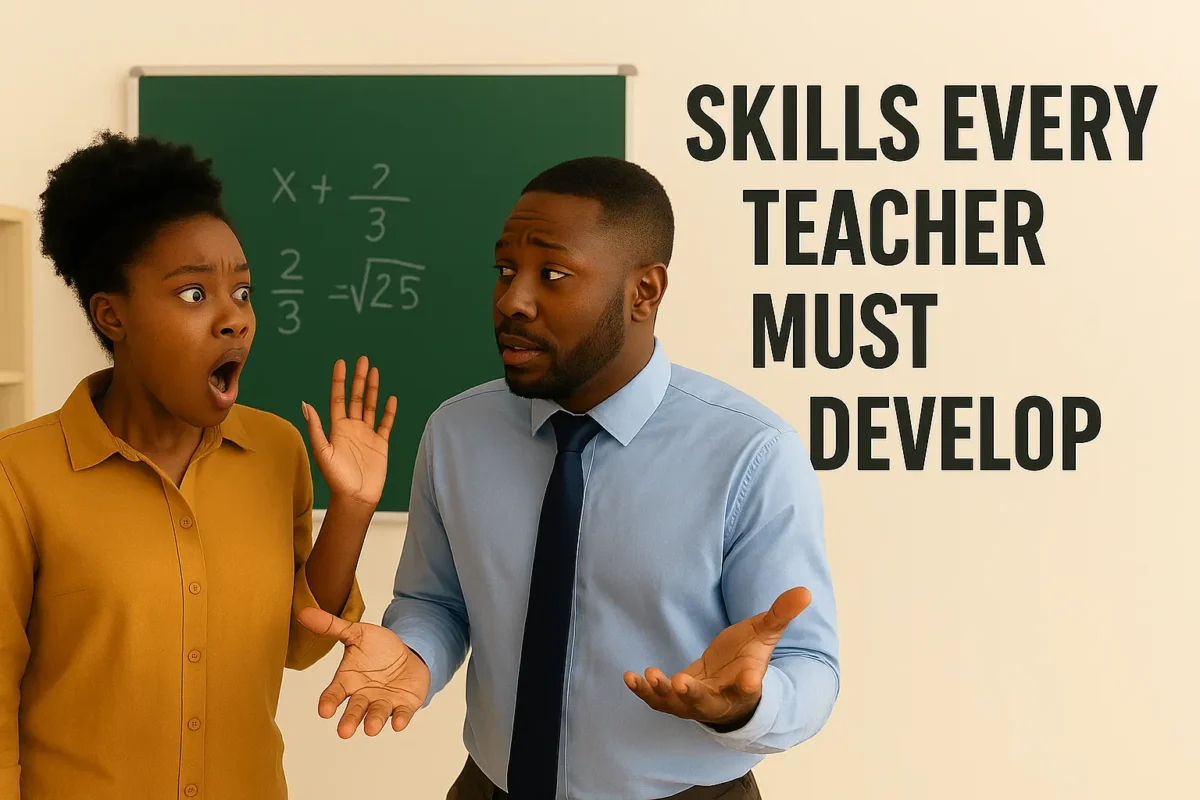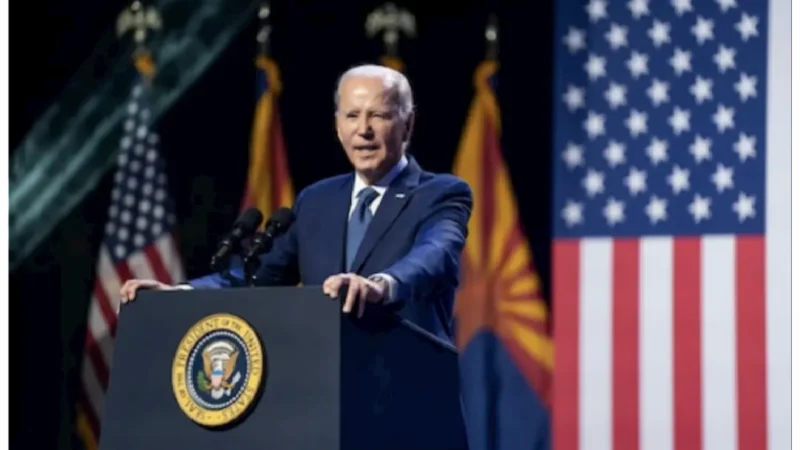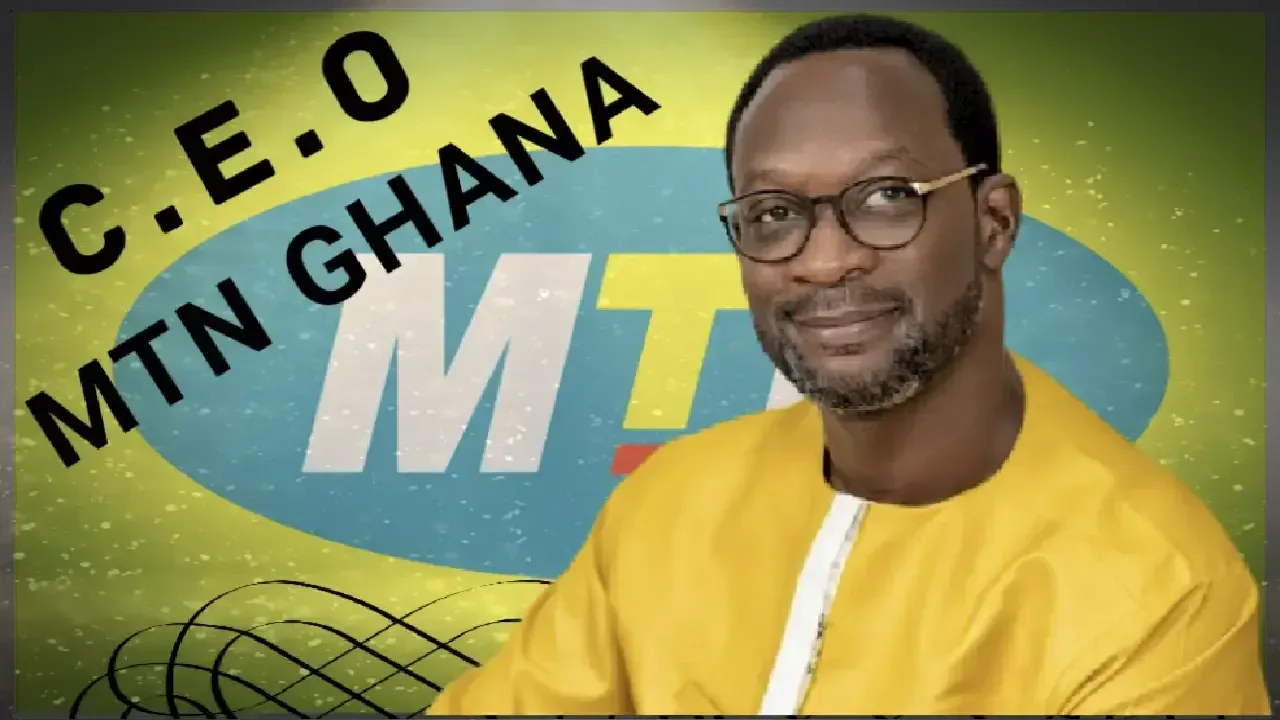The teaching landscape in Ghana vis-à-vis rapidly changing world. The 21st-century learning goals and new national policies keep evolving and teachers must continually adapt and adopt these changing trends to stay relevant and competent. Gone are the days when simply “covering the syllabus” was enough. Today’s teachers must be lifelong learners and innovators, able to adjust like sailors trimming sails to shifting winds. As one UNESCO analysis notes, teachers themselves must be “life-long learners”. Building these skills is crucial: effective teachers drive student success, and education projects in Ghana show this is working. In short, by upgrading their own skills, teachers become the change-agents who close learning gaps and build Ghana’s future.
1. Lifelong Learning and Reflective Practice
Even veteran teachers must keep growing. The OECD’s Teaching Compass reminds us that educators, like their students, must continually update their knowledge and skills. In high‑performing systems such as Finland, for example, about 60% of teachers hold a master’s degree and receive ongoing professional development. In practice, this means seeking out new courses, reading the latest research and reflecting on one’s lessons. A Ghanaian teacher might recall how chalkboards gave way to textbooks, then to a modern-day use of tablet, where a teacher is required to learn how to blend these tools makes a teacher continuenue to remain relevant and effective.
- Embrace professional development: Join workshops, online courses or teacher forums (for example Ghana’s National Teaching Council CPD programmes).
- Reflect on practice: After each lesson, ask what worked or didn’t; keep a journal or collaborate in a PLC (professional learning community) to discuss improvements.
- Update subject knowledge: Read journals or attend seminars to stay current in your subject.
Global evidence shows this pays off: investments in teacher training and mentoring consistently boost student learning
2. Digital Literacy and Tech Integration
Technology isn’t a “magic wand” in class – but used wisely it can expand access and engagement. Today’s teachers need solid digital skills: from using educational apps to conducting virtual lessons and managing classroom devices. Now, as digital literacy becomes a national priority (Ghana’s NTC even offers an online Digital Literacy and ICT Integration course for teachers (ntc.gov.gh), being tech-savvy is essential.
- Practice with tools: Familiarize yourself with basic software (word processors, spreadsheets, slide decks) and educational platforms. For example, try making simple PowerPoint lessons or use online libraries.
- Blend old and new: Use technology to enhance, not replace, your teaching. If tablets are available, let students do interactive quizzes; if not, project your slides onto the wall or use mobile phones for quick polls where applicable.
- Join digital training: Take part in ICT workshops or online communities. Programs like GALOP provide virtual training videos of best practices.
Incorporating and building your ICT skills, you stay relevant in the classroom and become a catalyst for change – introducing tools that can reach every learner, urban or rural.
3. Innovative and Student‑Centered Pedagogy
Staying competent means shifting from rote lectures to creative, student‑centered methods. Education in the 21st century values critical thinking, collaboration and creativity – skills that require teachers to be innovators (CCP Curriculum). In Finland and Singapore, teachers enjoy professional autonomy to try new approaches, which has helped those countries top PISA rankings. Ghana is following suit. Through GALOP, for instance, teachers are encouraged to use play-based learning and hands-on activities. In practice, you might design science games, project-based tasks or storytelling sessions that engage learners in constructing their own understanding irrespective a particular subject a teacher is handling.
- Adopt active methods: Experiment with group projects, role-plays, or inquiry-driven lessons. For example, let pupils solve a real-life math problem together or present in front of the class.
- Link content to context: Use local examples and problems (e.g. environmental issues in your community or Ghanaian literature) to make learning relevant.
- Learn from others: Share and observe peers’ classes. The World Bank notes that practical, repeated PD (like coaching and mentorship) helps teachers improve. Form local learning circles to exchange ideas.
By adopting new pedagogy, you not only keep students attentive and motivated, but also position yourself as a change-maker – the teacher who brings quality learning into every classroom. These innovative methods help children develop deeper understanding and 21st-century skills.
4. Inclusive Teaching and Socio‑Emotional Skills
Every Ghanaian classroom includes diverse learners – whether in ability, background or need – so an inclusive approach is vital. Teachers today must be sensitive to each child’s social and emotional development, not just academic progress. The OECD emphasizes that addressing social-emotional learning (SEL) is becoming a key feature of many education systems. In practical terms, this means creating a safe, respectful environment and supporting students’ well-being. For instance, if a child struggles with anxiety, the teacher’s empathy and encouragement can make all the difference.
- Differentiate instruction: Adapt lessons for varied learners. If some pupils struggle with a language barrier, use pictures or stories in a local language to explain concepts.
- Build relationships: Spend a few moments talking with students about their lives or interests. A caring teacher who remembers a child’s name and stories can inspire confidence and engagement.
- Teach life skills: Integrate cooperative learning, communication and empathy into lessons. For example, group projects teach teamwork, and open discussions can practise problem-solving in real life.
Such skills keep teaching relevant because they address the “whole child,” not just the textbook. In Ghana, policies now encourage local language instruction at early grades; teachers who master mother-tongue communication build bridges to learning. In this way, teachers become agents of equity – ensuring no child is left behind – and build a nurturing classroom culture.
5. Communication and Collaboration
A teacher does not work in isolation. Excellent communication skills and teamwork keep teachers competent. Whether it’s engaging with parents, liaising with colleagues or networking with educators across Ghana, collaboration expands a teacher’s impact. Just as parliamentarians consult constituents, or doctors work in hospitals, teachers flourish in professional communities. For example, Ghana’s T-TEL Foundation and Teacher Network promote sharing of resources among pre-tertiary teachers. Globally, collaborative networks are recognized as “promising practices” – peer observation and group mentoring help teachers learn faster.
- Engage parents and community: Regularly report student progress to parents in understandable terms. Involve local experts (farmers, artisans, elders) to enrich lessons with real-world relevance.
- Team-teach and peer observe: Work with a colleague to plan lessons or observe each other’s classes. Learning from a partner can introduce fresh ideas and feedback.
- Join professional bodies: Be active in the Ghana Education Service, NTC forums or teacher unions. Attend conferences (for example, World Teachers’ Day events) to stay connected with national strategies.
These collaborative skills keep you relevant because they prevent stagnation. When teachers exchange best practices – whether it’s a new reading drill or an innovative use of a simple material – everyone’s classroom gets better. Importantly, strong communication also lets you advocate for your students and profession. In practice, this means sharing your voice: discuss challenges in staff meetings, suggest improvements to headteachers, or mentor younger colleagues. The Ghanaian teachers can influence policy (for example, successful feedback on curricula or resource needs) and ensure that teaching remains a respected, dynamic profession.
6. Leadership and Change‑Maker Mindset
Finally, every teacher should see themselves as a leader and change agent. This doesn’t necessarily mean becoming a headteacher; even in the classroom you can take initiative. For instance, some Ghanaian teachers lead clubs (Science Club, Debate Club) or community projects (planting trees, health drives). Globally, teacher leadership is highlighted as crucial: the role of mentor or curriculum innovator is formally recognised in Singapore’s career framework, where outstanding classroom teachers become “Master Teachers” who guide peers.
- Mentor and share: Take under your wing a less-experienced teacher or student teacher. Offer guidance on lesson planning or classroom management.
- Take on extra roles: Volunteer for committees (e.g., library, ICT labs) or organise extracurricular activities. Showing leadership in these areas demonstrates professionalism.
- Innovate boldly: If you see a problem (say, low enrolment of girls in STEM), propose a school-wide solution (like a coding workshop for girls) and lead it.
Leadership in teaching is about expanding your sphere of influence. When you act as a change-maker – whether by integrating new lessons, organizing peer training, or simply demonstrating dedication – you inspire others and contribute to the whole system’s improvement.
The Way-Forward
In an era of rapid change, Ghanaian teachers stand at a crossroads: cling to old routines and risk falling behind, or grow into new roles as dynamic professionals. The stakes are high: according to UNESCO, only about 6% of Ghana’s lower-primary pupils currently reach expected reading levels, a sobering sign that quality teaching matters more than ever. Yet there is hope. The skills outlined above – lifelong learning, digital mastery, innovative pedagogy, inclusivity, collaboration and leadership – form a powerful toolkit. They ensure that you remain relevant and competent, and that you drive positive change in your school and community.
Every reader of this write-up is invited to take action: join a professional development course, pilot one new teaching method, or start a teacher discussion group. Policymakers, too, are urged to support these efforts by funding teacher training, reducing class sizes, and recognising excellence in teaching. Together, by developing these skills, Ghana’s teachers can meet any challenge and light the way forward. As the world educator Paulo Freire implied, real teaching is a revolutionary act – one that requires continually reinventing oneself. Ghana’s future is bright when its teachers keep learning, innovating, and leading the change.
Keep following GH Educate for more educational news and updates





One thought on “Skills Every Teacher Must Develop to Stay Relevant and Competent”